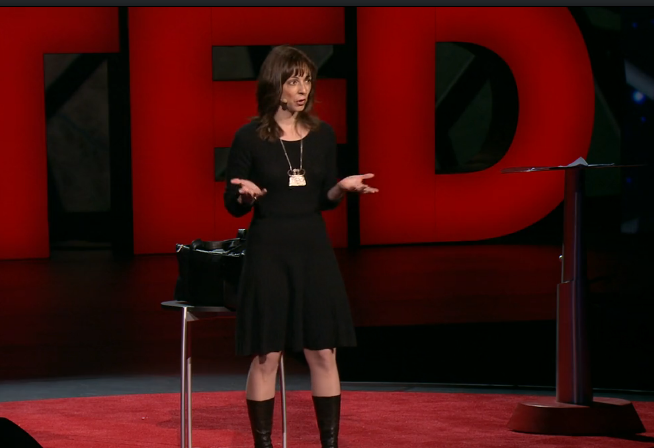Okay, same thing is true in our workplaces.
在职场上何尝不是如此。
Now, most of us work in open plan offices, without walls, where we are subject to the constant noise and gaze of our coworkers.
我们大多在开放的空间工作,没有隔阂,我们持续暴露于嘈杂的声音跟同事的目光下。
And when it comes to leadership, introverts are routinely passed over for leadership positions,
而关于领导能力,内向的人大多不被认为具有领导能力,
even though introverts tend to be very careful, much less likely to take outsize risks -- which is something we might all favor nowadays.
就算他们行事更谨慎,更不会为了出锋头冒不必要的险--我们不都偏好这种人当领袖吗?
And interesting research by Adam Grant at the Wharton School has found that introverted leaders often deliver better outcomes than extroverts do,
Adam Grant的一个有趣的研究发现,这些内向的领导者往往更能胜任领导职责,
because when they are managing proactive employees, they're much more likely to let those employees run with their ideas,
因为他们善于管理不同人才,让有远见的员工自由发挥,
whereas an extrovert can, quite unwittingly, get so excited about things that they're putting their own stamp on things,
反之外向的领导者,不经意的对事情反应过度,他们的见解较为主观,
and other people's ideas might not as easily then bubble up to the surface.
这使很多员工的创新想法没有机会被采用。

Now in fact, some of our transformative leaders in history have been introverts. I'll give you some examples.
事实上,很多有改革力的伟大领袖都是内向的人。我举一些例子。
Eleanor Roosevelt, Rosa Parks, Gandhi -- all these peopled described themselves as quiet and soft-spoken and even shy.
罗斯福、萝莎·帕克斯、甘地,这些人对自我的描述都是内向、文静、说话温柔,甚至是害羞的人。
And they all took the spotlight, even though every bone in their bodies was telling them not to.
他们矗立在镁光灯下,即使他们浑身上下都告诉他们说不要这样。
And this turns out to have a special power all its own,
这证明是一种属于它自身的特殊的力量,
because people could feel that these leaders were at the helm not because they enjoyed directing others and not out of the pleasure of being looked at;
因为人们都会感觉这些领导者同时是掌舵者,并不是因为他们喜欢指挥别人,抑或是享受众人目光的聚焦,
they were there because they had no choice, because they were driven to do what they thought was right.
他们处在那个位置因为他们没有选择,因为他们被驱使做他们认为对的事情。












